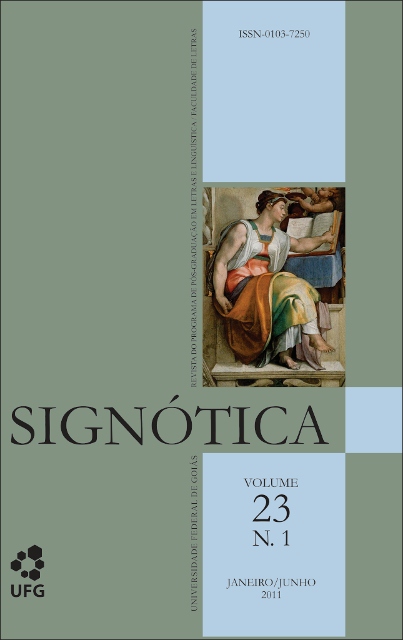The black woman and gender relations in menino de engenho by José Lins do Rego
DOI:
https://doi.org/10.5216/sig.v23i1.16155Abstract
The so called sugar cane cycle novels by the Parahyban writer Jose Lins do Rego (1901-197) and its relationship with society and culture constitute themselves as fictional approaches through which the writer sought to represent aspects to the understanding of gender relations in the Northeast of Brazil in the early twentieth century. Such representation, undoubtedly reflects the perspective of a narrator deeply marked by the privileged place from which he narrates and his existential condition, as the son of a plantation owner. Given these aspects, we propose to examine briefly the implications of his perspective on the symbolic construction of the black woman characteres represented in the novel. The followingDownloads
Download data is not yet available.
Downloads
Published
2011-11-08
How to Cite
BORA, Zélia Monteiro; OLIVEIRA, Marina Rodrigues de. The black woman and gender relations in menino de engenho by José Lins do Rego. Signótica, Goiânia, v. 23, n. 1, p. 231–245, 2011. DOI: 10.5216/sig.v23i1.16155. Disponível em: https://revistas.ufg.br/sig/article/view/16155. Acesso em: 19 feb. 2026.
Issue
Section
Article
License

This work is licensed under a Creative Commons Attribution-ShareAlike 4.0 International License.
Author (s) authorize Signótica to publish an article, if accepted, signing its contribution as original and not submitted to another publisher for publication. In case of acceptance and publication, Signótica's articles are Creative Comons BY-NC-ND (Attribution + Non-Commercial + Non-Derivatives)





1.png)





